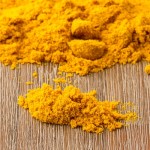Curcumin Could Help Fight Mesothelioma

 Malignant mesothelioma, a cancer of the lining of the lungs that is largely attributable to asbestos exposure, could face a worthy opponent in the form of curcumin, a compound that occurs in the spice turmeric, according to research reported in October 2014 issue of Clinical Cancer Research.
Malignant mesothelioma, a cancer of the lining of the lungs that is largely attributable to asbestos exposure, could face a worthy opponent in the form of curcumin, a compound that occurs in the spice turmeric, according to research reported in October 2014 issue of Clinical Cancer Research.
Ashfin Dowlati and colleagues at University Hospitals Case Medical Center in Cleveland measured mesothelioma tumor expression of PIAS3 (protein inhibitor of activated STAT3), which is correlated with overall survival. They additionally evaluated the effects of PIAS3 activity on the intracellular protein and transcription factor STAT3 (signal transducer and activator of transcription 3), which can trigger cancer onset and growth. “In those mesothelioma patients where PIAS3 is low, indeed STAT3 is activated,” reported Dr Dowlati. “Mesothelioma patients who have low PIAS3 and high STAT3 have a greater chance of dying early. On the flip side, those patients with a high PIAS3 levels have a 44 percent decreased chance of dying in one year, which is substantial.”
The team found that STAT3 down regulation, via enhanced expression of PIAS3 or exposure to a peptide derived from PIAS3, inhibited cell growth and increased apoptosis. Administration of curcumin resulted in PIAS3 induction, indicating a potential role for the compound in mesothelioma therapy.
“Our findings suggest that PIAS3 expression positively affects survival in mesothelioma patients and that PIAS3 activation could become a therapeutic strategy,” Dr Dowlati commented. “Our interest for the future is that we want to find better, more simple ways to increase intracellular levels of PIAS3 for malignant mesothelioma through the use of synthetic PIAS3 peptide or curcumin analogs.”
“Our findings beg the question of what role PIAS3 could play in limiting STAT3 activation in other cancers as well,” he added. “There is an opportunity to extend this discovery because a number of cancers are STAT3-activated.”